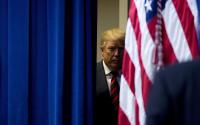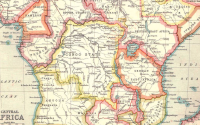14 January 2008Nicola Clark
Virgin Atlantic said Monday that it would conduct a demonstration flight next month of one of its Boeing 747 jets using biofuel - the first airborne test of a renewable fuel by a commercial jet.
The airline, founded by the British billionaire Richard Branson, said a 747-400 plane would make the journey lasting one hour and 20 minutes from London Heathrow Airport to Amsterdam in late February using 20 percent biofuel and 80 percent conventional jet fuel. The test, without passengers, is part of a joint research project announced by Virgin, Boeing and the aircraft engine maker, GE Aviation.
The airline declined to identify the source of the biofuel, though Paul Charles, a Virgin spokesman, said the carrier had rejected fuels derived from crops like palm oil because of the huge land area that would need to be devoted to cultivation for fuel production.
"It will be a very sustainable fuel source," Charles said, adding that its production would not compete with food or fresh water resources.
Engineers at Boeing and its European rival, Airbus, estimate that supplying all the airliners in the world with pure soybean-based biofuel would require planting an area the size of Europe. Biofuel researchers have also identified certain varieties of algae as a possible feedstock, noting that they have a much higher energy content than oilseeds and would therefore be far less demanding on the environment.
Boeing estimates that supplying the aviation industry with algae-based fuel would require just 35 square kilometers of ponds and that the algae could even be cultivated in salt water.
GE Aviation said the test plane would be configured with one of its CF6 engines, which would not require any modifications to burn biofuel. The new fuel would also have no effect on the engine's performance or range, the company said. Boeing says its 747-400s are capable of flying 7,260 nautical miles, or 13,450 kilometers.
"This is meant to be a drop-in solution," said Deborah Case, a GE Aviation spokeswoman. "That is one of the requirements of the project."
Branson's critics have sometimes accused him of hypocrisy because of the role that Virgin Atlantic and other airlines play in contributing to carbon dioxide emissions.
But since 2006, Virgin Group says, it has earmarked all of the profits from its airline and rail businesses to financing research and development of alternative fuels.
Branson has also joined forces with Al Gore, the Nobel laureate and former U.S. vice president, to finance a $25 million prize for finding an effective way of removing greenhouse gases from the atmosphere.






